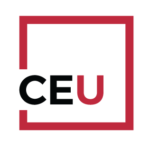Do you always need the market research studies you run?
You might have seen a recent post of mine on LinkedIn where I said how frustrated I am with marketers who start with a survey when they have a question, rather than ending with one.
If you too have this habit, then I want to share how you can do fewer surveys and yet still know much more about your customers.
Let me start by saying that I am not suggesting that companies don’t run market research. Rather, I am proposing that they don’t conduct a survey before having reviewed their current situation in detail. And in particular, the information that is already available inside the organisation.
In many companies, there is far more information available than people realise. Research shows that 68% of data is not used by businesses who invest in it — that’s over two-thirds of data – and budgets – wasted!
To make optimum use of your resources – time, money, and people – my suggestion is to first gather and analyse what is already available. In this way, any research that is conducted will be far more focused, and usually faster and cheaper too!
In my CATSIGHT™ process for actionable insight development, data gathering is the sixth of the seven steps! If you’d like to learn more about it, then do check out my online course on the topic. In under two hours, you will learn how to easily develop insights that can be immediately put into action.
Ten Reasons NOT to Run Market Research
One of my cornerstone posts here, which continues to receive hundreds of views every month is “Ten reasons NOT to conduct market research.” In summary, I advise leaders to avoid surveys:
- Where the objectives are not well defined, and the issue or opportunity needs further clarification.
- Where the cost of running the survey exceeds its value, especially in how the information will be used.
- Where the budget is too small to do an adequate job of information gathering. In this case, corners will be cut, either in terms of the depth of the investigation or in the sample size.
- Where the time available to run and report on the project is too short. This is often a problem when new products or communication campaigns are being tested, and there is a delay in their delivery for testing.
- That could “tip off” the competition by researching the confidential topic. Obviously running projects on ultra-secret development work is ill-advised unless you carefully control who is interviewed.
- Where the findings would not be actionable. Hopefully, this can be avoided by having detailed clarification of the objectives of the study.
- That are motivated by internal politics, such as to prove a point, rather than by a need for information.
- That are designed to measure trends that progress too slowly or too fast and thus will provide insignificant changes.
- Where the agency used to gather the information is unreliable or unethical. This may surprise you, but too many projects are given to the cheapest rather than to the best supplier.
- Where the information already exists, which happens when the project has not been adequately prepared.
The last point in the list is what I mentioned at the start, but as you can see, there are many other reasons not to run a market research project.
Many of these points are about things which can be easily resolved if appropriate preparation is done. This includes ensuring everyone agrees on the need for information, the objectives are clear and approved, and that you are ready to invest both time and money in acquiring the knowledge.
Know Much More About Your Customers
Coming back to the title of this article, how can you know more about your market and customers, while at the same time doing less market research? Simple, by being laser-focused in what and how you gather and use information.
According to a recent report, up to 75% of data remains unused in businesses. One study found that while leaders agree data is extremely valuable to business success, those same organizations say 55% do not fully leverage their data.
My review of one client’s information sources uncovered that they were buying tens of copies of the same report, costing hundreds of thousands of dollars each year! How much could you save with a simple information audit? Contact me to find out.
With a single market research study costing between $20,000 to $50,000 or more on average, many companies end up spending millions on enterprise data and market research every year. I am sure you can find a better use for much of your own budget!
That is why it is so important to identify clear objectives and then gather all available information before running market research to fill any gaps you may uncover.
The Art of Strategic Prioritization
Prioritization is key to running successful market research surveys. A Harvard Business Review study reveals that companies that prioritize their research questions effectively are 2.3 times more likely to have successful product launches.
It is always tempting to add questions and sections, even additional topics when developing a survey questionnaire. This is not ideal, since it can result in superficial coverage, respondent fatigue and diluted recommendations on the original answers sought.
However, stay focused on the identified need and the answer becomes clear. By prioritizing questions about customer pain points and preferences, Amazon improved its product recommendations and increased average order values by 20%.
Leverage Advanced Analytics to Know More About Your Customers
Advanced analytics can extract meaningful insights from smaller datasets. A report by Deloitte indicates that companies utilizing advanced analytics reduced research costs by 32% on average.
The Mayo Clinic used predictive analytics to optimize patient care and reduce research costs. By focusing on a subset of patients, they were able to reduce their investments but also improve patient outcomes by 15%.
Harness the Power of Customer Feedback
Often overlooked as a readily available source of information, customer feedback is invaluable in understanding market opinions and is usually free as well. Therefore it should be considered before investing in any market research surveys.
According to a Zendesk survey, 88% of customers are influenced by online reviews, making customer feedback a goldmine for understanding market sentiment.
McDonald’s analyzed customer feedback and adjusted their menu offerings based on their findings. This led to a 10% increase in customer satisfaction scores and a 12% boost in repeat business.
Competitive Intelligence Can Help You Know More About Your Customers
Customer feedback is not the only source of valuable information that can be reviewed before running a market research survey. Competitive intelligence doesn’t require extensive resources either.
A study by the Aberdeen Group found that companies with streamlined competitive intelligence processes had a 26% higher win rate in competitive sales situations.
One example of this is Toyota. They monitored competitors’ pricing strategies and reacted swiftly when changes were uncovered. As a result, they improved their pricing competitiveness and increased market share by 8% in just one year.
Navigating the Data Deluge with AI and Machine Learning
AI and ML can provide invaluable insights. According to McKinsey, companies that leverage AI in market research, report a 10-15% reduction in research costs and a 20-25% improvement in research quality. If you want to know more about your customers, then you should look into harnessing the power of AI.
Walmart is one company that implemented machine learning algorithms to analyze customer behaviour. This resulted in more personalized marketing campaigns that increased sales by 14%.
Mastering Market and Customer Understanding in the Digital Age
In today’s digital world, market mastery isn’t about drowning in data but rather about developing actionable insights.
Using the right information to make informed decisions is a sound strategy. By avoiding over-research, prioritizing key questions, leveraging advanced analytics, and harnessing all available information within an organisation, senior executives can navigate the complexities of their markets efficiently.
The examples and statistics presented in this blog post illustrate that doing less market research while better understanding your market to know more about your customers is certainly achievable.
But more than that, it is also vital for staying competitive and agile in today’s business landscape.
By utilising your resources more effectively, you improve departmental collaboration and save both time and money by running projects to fill gaps rather than to answer questions that have often already been asked by others before you.
Contact us today to embark on a journey towards your own market mastery and transformative decision-making. Your organization’s success could be waiting at the end of our call.











